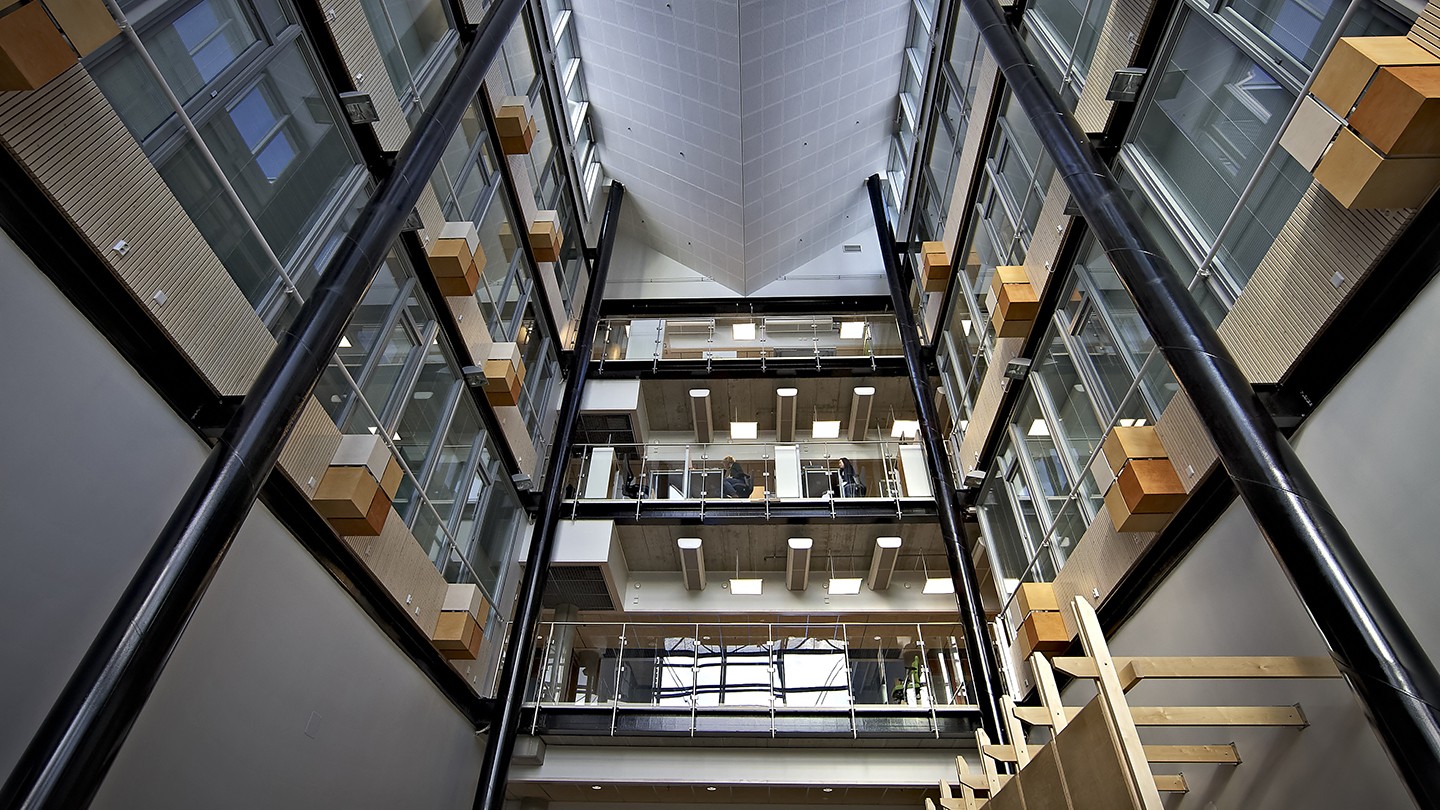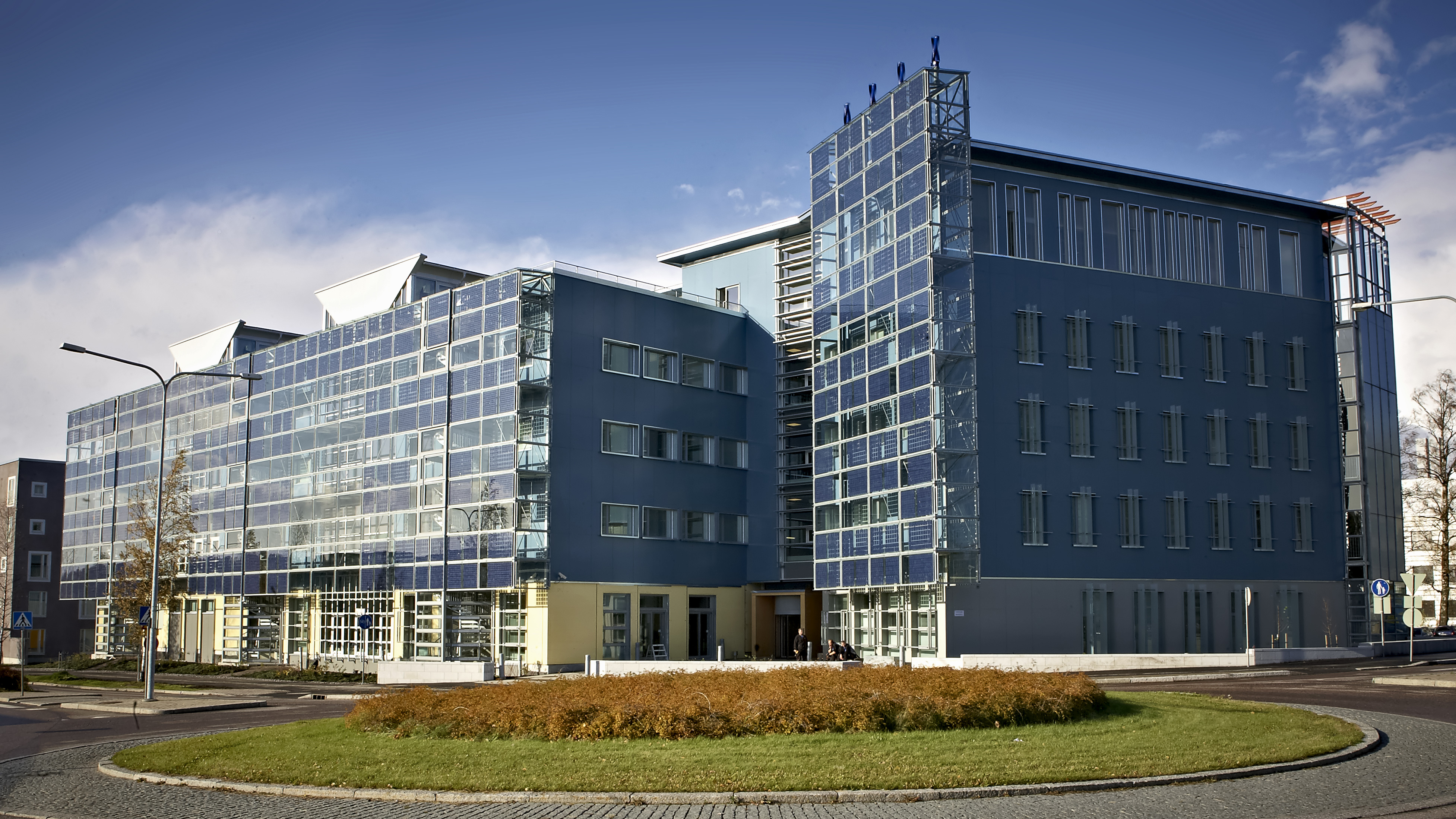
Savings of 10–30 per cent with a smart heating system: “Even in a zero energy building, it was possible to reduce the use of district heating”
Fourdeg, a company specialised in smart heating solutions, won WWF’s Climate Solver competition, which looked for significant innovations related to climate change. Fourdeg’s solution is being used for instance in Viikki Environment House, which is one of the least energy-consuming office buildings in Finland.
The Finnish company Fourdeg, which creates smart heating solutions, won an award in WWF’s Climate Solver competition in May. The competition was looking for companies whose innovations could have a significant impact in the work against climate change.
– The clean tech field isn’t the easiest one, but demands a lot of perseverance and hard work. Getting an award for value-driven clean tech is very important to us. The award is not only for our team, but also a very positive thing in the eyes of the general public, Markku Makkonen, CEO of Fourdeg, described his feelings.
Fourdeg’s representatives received the award in Malmö in May. According to Makkonen, people noted the award already on the way home, and gave positive feedback.
Optimising hydronic heating
Fourdeg is, in a nutshell, a services company that specialises in optimising hydronic heating. The company’s solution uses artificial intelligence to predict the heating of a building room by room. The service improves ease of use and saves in expenses. At its simplest, the only impact of Fourdeg’s solution on a consumer’s life is that their flat’s radiator thermostat looks a bit different.

– You can set the thermostat at a temperature you like, or use a cloud service to create a schedule that suits your life situation. After that, the heating works completely automatically, guided by the agreed-upon targets. This allows you to even unwanted temperature differences inside the building.
– In buildings that are not in constant use, such as schools, you can take into account that the building is sometimes empty. At those times, it is heated less. You can also improve how ventilation and heating work together in buildings.
Viikki Environment House: saving energy in a zero energy building
A good example of how well Fourdeg’s services work in practice is the Viikki Environment House, which is managed by the city of Helsinki and frequently cited as one of the least energy-consuming office buildings in Finland. Helsinki, Nantes and Hamburg are pioneer cities in energy efficient living, electrical mobility and smart home solutions in EU’s mySMARTLife project, which is why the building was selected to be part of an energy efficiency pilot project. For Helsinki, the key focus is to test technologies that aim towards carbon neutrality and that could be applied to as many different kinds of buildings as possible.

– We act as a solution provider to make Fourdeg’s smart heating a part of the building systems of the Environment House. Our role specifically is to implement district heating demand elasticity in the building.
– In principle, it’s a nearly zero energy building, but even there we were able, in the end, to reduce the use of district heating. Even though we provided demand elasticity, which doesn’t always reduce overall energy consumption, as a side effect district heating consumption was reduced by 10–12 per cent.
EU projects typically involve cities or other large operators, whose problems are then solved. The idea is to find new solutions to their problems. Fourdeg’s solution supports the city’s big goals.
It has resulted in good energy savings also elsewhere.
– In other sites, the energy savings achieved by a smart thermostat connected to a multi-learning cloud service are around 10–30 per cent. The record is 33 per cent. The range is comparatively large due to different starting points, buildings’ varying usages and the other building systems.

Fourdeg has tried to use the Viikki Environment House also as a test environment for its services. The building has been used to investigate the limits where users begin to notice something in its heating.
– At some points during the test period, people have observed that something seems to be going on. The temperature has been slightly cooler or warmer than normal. We also automatically detected a maintenance requirement in the building’s heating system from during construction, which had not been taken care of.
Introduction of new ideas provokes discussion
Makkonen explains that the greatest challenges with Fourdeg’s energy efficiency solution are the same ones you get whenever you are trying to create something new. The same challenges were there in the Viikki Environment House project and also in bringing the solution to the market.
– Real estate is a 5000-year-old industry. You can never bring new ideas to some virgin soil. There are always long-standing practices. If you change them, it provokes discussion and a need for discussion, which leads to things proceeding slower.
– When communication is dealt with, people usually react positively. And when everyone is on the same page, things tend to proceed. Usually people prefer to do their work well rather than badly.
